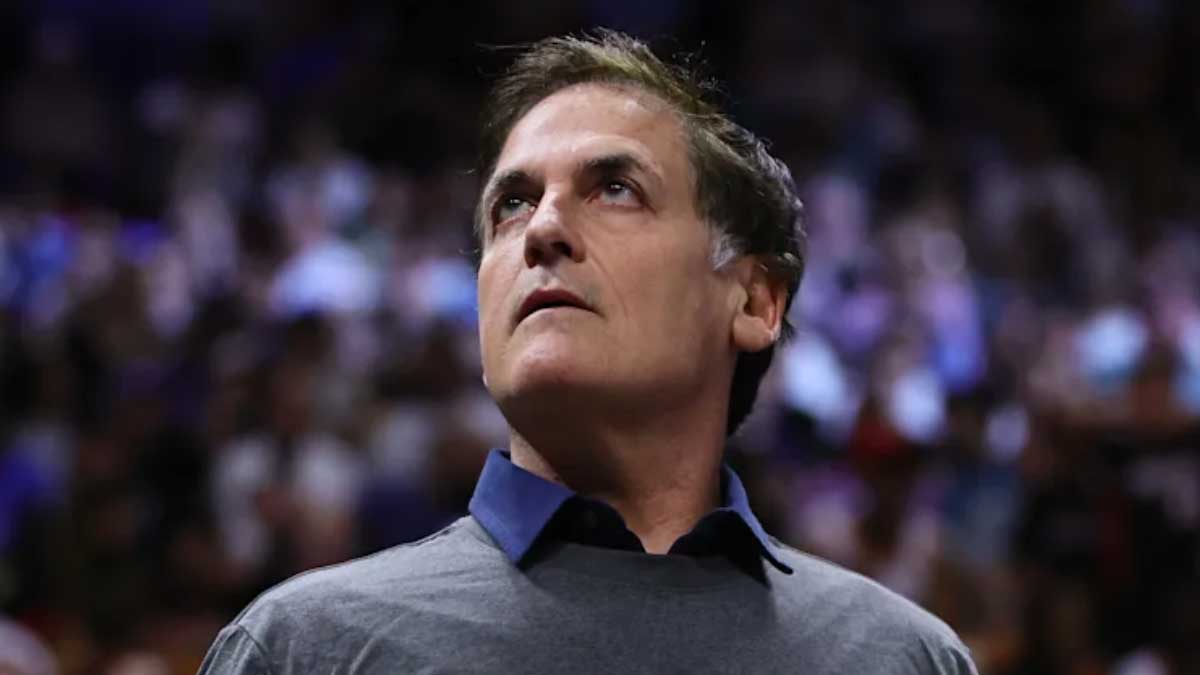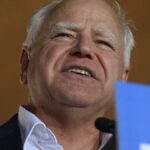- Home
- Billionaires
- Investing Newsletters
- 193CC 1000
- Article Layout 2
- Article Layout 3
- Article Layout 4
- Article Layout 5
- Article Layout 6
- Article Layout 7
- Article Layout 8
- Article Layout 9
- Article Layout 10
- Article Layout 11
- Article Layout 12
- Article Layout 13
- Article Layout 14
- Article Sidebar
- Post Format
- pages
- Archive Layouts
- Post Gallery
- Post Video Background
- Post Review
- Sponsored Post
- Leadership
- Business
- Money
- Small Business
- Innovation
- Shop
Recent Posts
Cuban Warns of Fallout from Trump’s John Deere Tariff Threat

Billionaire entrepreneur Mark Cuban has sharply criticized former President Donald Trump’s recent proposal to impose a staggering 200% tariff on John Deere if the company proceeds with plans to move its production to Mexico. During a Kamala Harris campaign call on Tuesday, Cuban described Trump’s threats as “insanity,” offering a detailed rebuke of the former president’s economic policies.
Cuban voiced his concerns during a conference call with reporters organized by the Harris campaign, just before Trump was set to deliver a speech in Savannah, Georgia. He argued that if Trump were to implement such tariffs—significantly higher than those he has proposed for Chinese imports—it could devastate John Deere’s operations. “This move would be ridiculously bad and destructive,” Cuban asserted, warning of the potential “destruction of one of the most storied companies in the United States of America.” He elaborated that these tariffs would inadvertently make it easier for Chinese manufacturers to compete against John Deere, which would undermine the company’s market position and ultimately harm American jobs.
Trump had issued his warning to John Deere during a speech in Pennsylvania, threatening to enforce “a 200% tariff on everything that you want to sell into the United States” if the company went through with its plans to lay off Midwest employees and shift production south of the border. This proposal not only alarmed Cuban but raised broader questions about the implications of such tariffs for the U.S. economy.
In addition to questioning the feasibility of Trump’s tariffs, Cuban highlighted a crucial concern regarding the United States-Mexico-Canada Agreement (USMCA), which Trump signed into law in 2020. This agreement includes provisions designed to prevent tariffs on Mexican goods, in exchange for commitments from Mexico to address migration issues at the U.S.-Mexico border. Cuban wondered aloud whether Trump’s latest tariff threats would conflict with the commitments made under this agreement, further complicating an already contentious economic landscape.
Cuban’s remarks come as he has increasingly aligned himself with Vice President Kamala Harris, emphasizing her understanding of business and economic policies. He stated, “She’s better for business” and criticized Trump for making spontaneous policy declarations that lack depth or serious consideration. “She thinks through her policies,” he added, contrasting Harris’s approach with what he perceives as Trump’s tendency to say “what he thinks the crowd wants to hear.”
Experts in economic policy have echoed Cuban’s warnings about the negative effects of Trump’s proposed tariff increases. Analysts have noted that raising import taxes could drive up prices for consumers, ultimately hurting the U.S. economy. This would manifest in reduced consumer spending, as Americans would face higher costs for everyday goods due to increased tariffs on imports.
In his critique of Trump, Cuban also took aim at the former president’s proposal to cap credit card interest rates at 10%. He compared this idea to Senator Bernie Sanders’ proposal for a 15% cap, remarking, “So now you’ve got Donald Trump getting involved in price caps and price controls to a greater extent than self-described socialist Bernie Sanders.” This criticism illustrates Cuban’s broader concern about the direction of Trump’s economic policies, which he feels lack a solid grounding in reality.
Cuban’s critical stance is not new; he has been an outspoken critic of Trump since the former president entered the political arena. Although Cuban initially supported Trump’s 2016 presidential campaign, he later endorsed Hillary Clinton after expressing disillusionment with Trump’s approach to leadership and policy. Cuban has consistently highlighted Trump’s penchant for bombastic rhetoric and his failure to clearly articulate substantive proposals.
In September, Cuban was part of a coalition of more than 90 business leaders who publicly endorsed Kamala Harris in an open letter. They praised her “strong record of advancing actions to spur business investment in the United States and ensure American businesses can compete and win in the global market.” This endorsement reflects a growing sentiment among business leaders who view Harris as a more stable and predictable choice for economic leadership compared to Trump.
Cuban’s net worth is estimated at approximately $5.7 billion, significantly overshadowing Trump’s estimated net worth of $3.6 billion. This financial backdrop lends additional weight to Cuban’s opinions on economic policy, as he draws on his extensive experience in business and entrepreneurship.
Overall, Cuban’s pointed criticisms of Trump during the Harris campaign call highlight the broader debate over economic policies and their potential impacts on American businesses. As the political landscape continues to evolve, Cuban’s voice adds a significant perspective to discussions about the future of U.S. trade and economic strategy, especially in relation to tariffs, manufacturing, and competition with foreign markets.
Recent Posts
Categories
- 193cc Digital Assets2
- 5G1
- Aerospace & Defense46
- AI37
- Arts3
- Banking & Insurance11
- Big Data3
- Billionaires449
- Boats & Planes1
- Business328
- Careers13
- Cars & Bikes76
- CEO Network1
- CFO Network17
- CHRO Network1
- CIO Network1
- Cloud10
- CMO Network18
- Commercial Real Estate7
- Consultant1
- Consumer Tech180
- CxO1
- Cybersecurity68
- Dining1
- Diversity, Equity & Inclusion4
- Education7
- Energy8
- Enterprise Tech29
- Events11
- Fintech1
- Food & Drink2
- Franchises1
- Freelance1
- Future Of Work2
- Games141
- GIG1
- Healthcare78
- Hollywood & Entertainment186
- Houses1
- Innovation42
- Investing2
- Investing Newsletters4
- Leadership65
- Lifestyle11
- Manufacturing1
- Markets20
- Media193
- Mobile phone1
- Money13
- Personal Finance2
- Policy567
- Real Estate1
- Research6
- Retail1
- Retirement1
- Small Business1
- SportsMoney33
- Style & Beauty1
- Success Income1
- Taxes2
- Travel10
- Uncategorized8
- Vices1
- Watches & Jewelry2
- world's billionaires418
Related Articles
Trump Moves $4B Stake in Truth Social Parent, Stock Drops 6%
Donald Trump recently transferred his 57% stake in Trump Media & Technology...
By 193cc Agency CouncilDecember 20, 2024House Rejects Trump-Backed Funding Bill, Shutdown Looms
The U.S. House of Representatives rejected a new government funding bill on...
By 193cc Agency CouncilDecember 20, 2024Trump Named Time’s Person of the Year for Second Time
On Thursday, Time magazine honored Donald Trump as its “Person of the...
By 193cc Agency CouncilDecember 12, 2024Meta Donates $1 Million to Trump’s Inaugural Fund
Meta, the parent company of Facebook and Instagram, has confirmed a $1...
By 193cc Agency CouncilDecember 12, 2024















Leave a comment